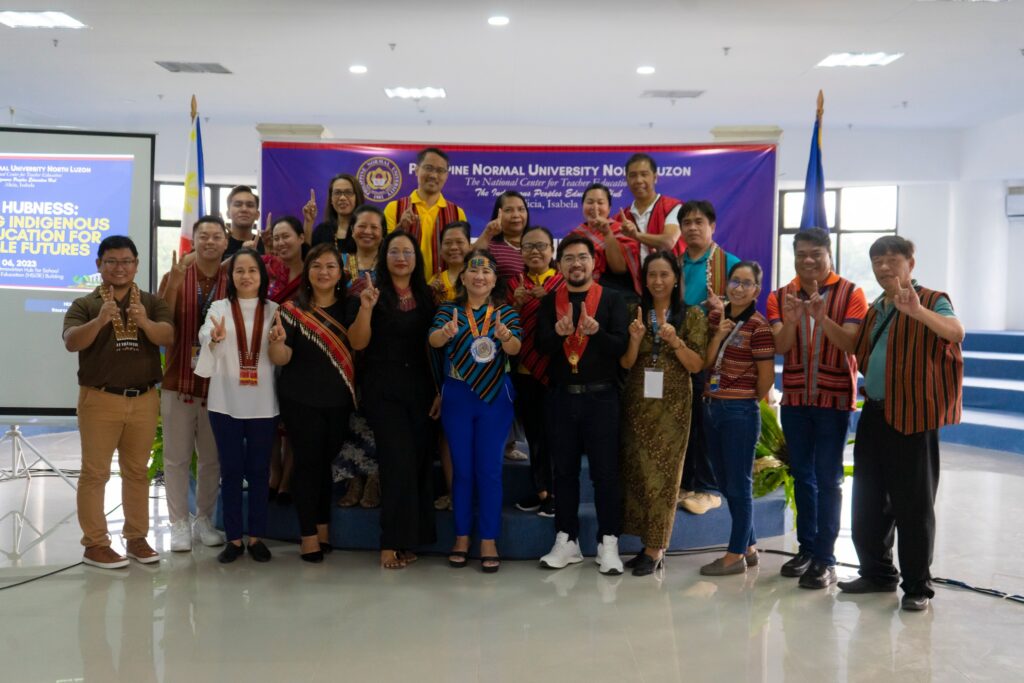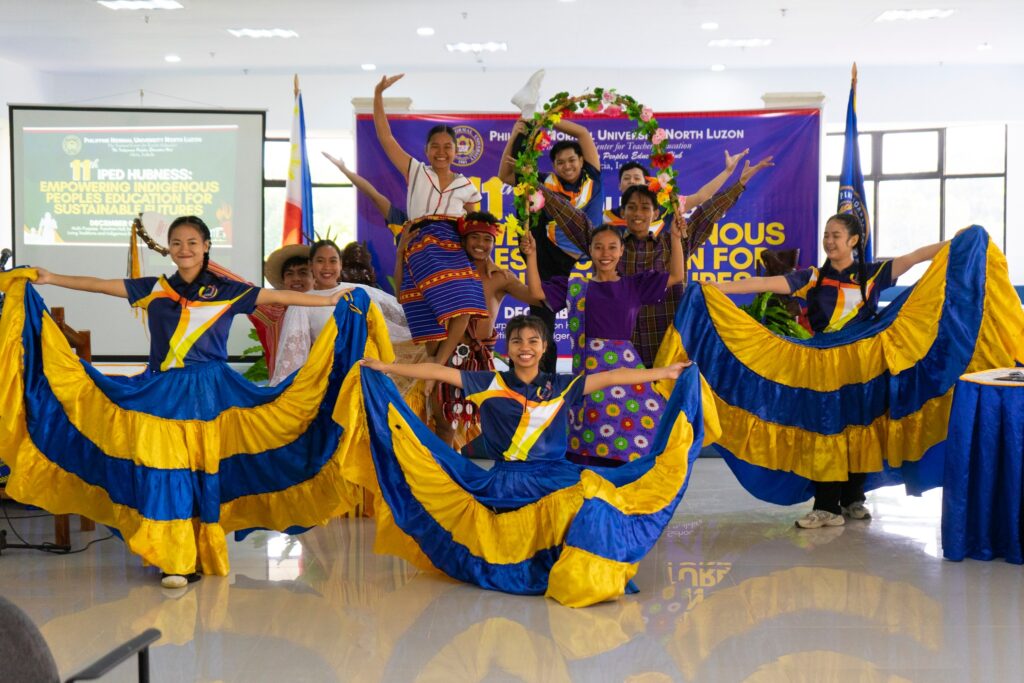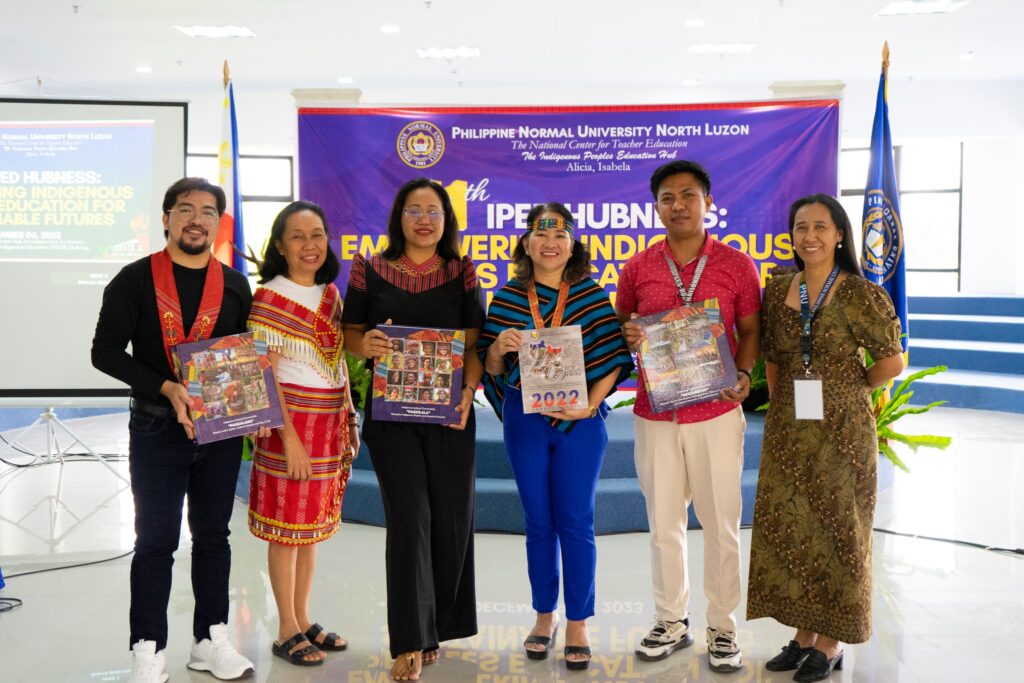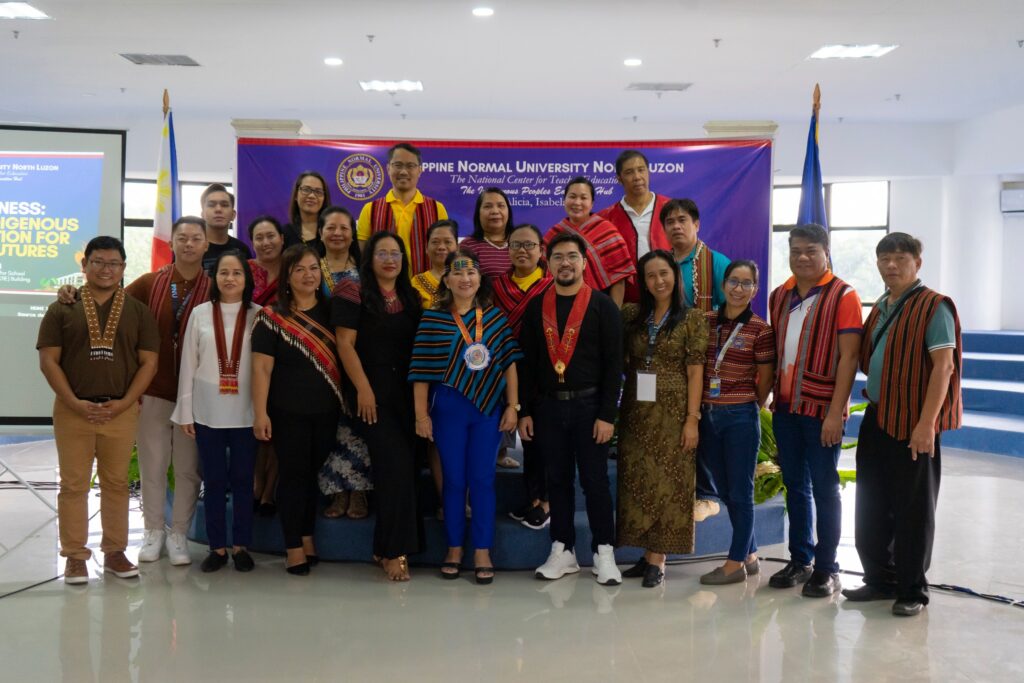𝘣𝘺 𝘓𝘦𝘺𝘢𝘮𝘪𝘳 𝘚𝘢𝘯𝘵𝘪𝘢𝘨𝘰
ALICIA, Isabela – Continuing its service in empowering Indigenous People (IPs) through education, Philippine Normal University North Luzon (PNUNL) commemorated its 11th year as the Indigenous Peoples Education (IPEd) Hub with the theme “Empowering Indigenous Peoples Education for Sustainable Futures” on December 7, at the Multi-Purpose Function Hall, Innovation Hub for School Living Traditions and Indigenous Education (IHSLTIE) Building.
According to Dr. Madonna C. Gonzales, Dean for Academics and IPEd, this year’s theme is not just a call to action but a commitment to rectify historical injustices and pave the way for a more inclusive future.
“Let us pledge our commitment as PNUans to the cause of empowering Philippine Indigenous Peoples through education,” Gonzales stated, further stressing the collective responsibility of the PNUNL community to break “chains of inequality” by addressing the systemic challenges that hinder our IP access to education.
‘𝗔 𝗯𝗲𝗮𝗰𝗼𝗻 𝗼𝗳 𝗰𝘂𝗹𝘁𝘂𝗿𝗮𝗹 𝗵𝗲𝗿𝗶𝘁𝗮𝗴𝗲’
Meanwhile, as the event highlighted PNU’s remarkable endeavors as an IPEd hub in the past years, Dr. Leticia N. Aquino, the Executive Director and Provost, proudly shared PNUNL’s new trademark, the Museum of Living Traditions which aims to serve as a beacon of cultural heritage and a statement to the university’s commitment to preserve, celebrate, and share the invaluable heritage of indigenous communities.
“The museum embodies our dedication to fostering understanding, appreciation, and respect for indigenous knowledge systems,” Aquino said.
“It will be a dynamic space, a living tribute that embraces the wisdom of the past while embracing the possibilities of the future,” she added.
After the presentation of the hubness logo and the presentation of the Museum’s vision, mission, and goals that are “still open for critiquing,” Dr. Jandy S. Danzalan, the Officer-in-Charge of the Center of IPEd, then presented the Masterplan for the Museum of Living Traditions.
Danzalan noted four objectives, namely, applying IPSP and Industry 4.0 strategies through thematic research; Collecting and mapping different IP research and creative works of faculty and students through the Workshop: Burnay; creating knowledge, products, services and experiences that bridge the gap between tradition and innovation and generate revenue from indigenous innovation hub and university of living traditions activities; and develop research material for General Philippine Education.
‘𝗘𝗗𝗣 𝗽𝗿𝗲𝘀𝗲𝗻𝘁𝘀 𝗿𝗲𝘀𝘂𝗹𝘁𝘀 𝗼𝗳 𝗣𝗡𝗨𝗡𝗟’𝘀 𝗶𝗻𝘁𝗲𝗿𝗻𝗮𝘁𝗶𝗼𝗻𝗮𝗹 𝗽𝗮𝗿𝘁𝗻𝗲𝗿𝘀𝗵𝗶𝗽𝘀’
During the presentation, the EDP also delivered updates on its international partnerships in its Statement of the Result of Partnership in South Korea and Switzerland.
She presented the activities created in collaboration with the University of Zurich in Switzerland and the Korea University of Media Arts (KUMA) and the first tripartite partnership between PNUNL, Isabela State University (ISU), and the University of Zurich.
According to Aquino, the finished projects included the Agta coffee table book initiated by the University of Zurich in 2013 about the Agtas in Dinapigue, the tree planting program conducted by the same tripartite for the Agtas, the Sandwich program or the scholarship program for both faculties of ISU and PNUNL, the development of Agta Curriculum, and the development of Instructional Materials in the form of big books.
“My initial discussions about [the curriculum is] 6 loads lang ang ibibigay sa kanila at hindi siya gaganapin dito sa classroom kundi outdoor siya. The practical skills to be included in the courses are needed,” the EDP stated.
[My initial discussion about the curriculum is that only 6 loads will be given, and it will not be inside the classroom but outdoors. The practical skills to be included in the courses are needed.]
Meanwhile, the second three-way partnership between PNUNL, West Visayas State University (WVSU), and KUMA resulted in the following outcomes: the establishment of the Museum for Living Traditions and the exchange students and faculty with KUMA.
‘𝗘𝗗𝗣 𝗱𝗲𝗹𝗶𝘃𝗲𝗿𝘀 𝗳𝗶𝗿𝘀𝘁 𝗦𝗖𝗔’
As the event also highlighted the EDP’s first State of the Campus Address (SCA), Aquino expressed her gratitude to the PNUNL community—the management team, her co-officials, faculty members, administrative staffs and the whole studentry—for their relentless efforts and unwavering support during her term.
Aquino gave thanks to the academic team, led by Dr. Madonna Gonzales, and the faculty members who devoted time and their commitment to quality instruction.
She also emphasized in her SCA that amidst the accomplishments of the university, PNUNL’s relationship with one another is more important than anything else.
“The position we may have may last but the good relationship we have will last forever in our hearts,” Aquino said.
The celebration of the 11th IPEd Hubness of PNUNL concluded with the workshop of Burnay, wherein different IP research and creative works of both the faculty and students were classified into the respective ethnic groups that they were based on: Ifugao, Gaddang, Yogad, Ibanag, Kalinga, Agta, and Malaueng. These works have been collected and presented as part of the four objectives of the Museum of Living Traditions’ Masterplan.




